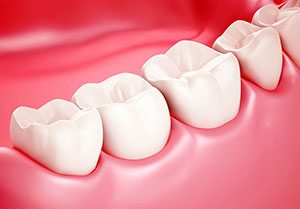
Your wisdom teeth are your 3rd molar teeth that erupt around 16-20 years old if they erupt at all. Often, ample room doesn’t exist in the mouth for these incoming teeth. As a result, they may need to be removed before issues arise. Impaction of wisdom teeth impaction can lead to pain, swelling, infection, shifting of other teeth and even cavities on your 2nd molar teeth.
Wisdom Tooth Extraction Procedure
Your dentist can perform wisdom teeth removal while you are awake or asleep. However, it depends on the complexity of the extractions. Some teeth may be impacted, and some may not be.
- You may be put to sleep through sedation, depending on your treatment plan.
- Specialized tools will be used by your dentist to remove the wisdom teeth.
- The area of the extracted tooth may be sutured to promote healing.
- Your dentist will give you instructions for care and recovery after.
Benefits of Wisdom Tooth Removal
- It reduces your risk of infection
- Minimize the risk of swelling and pain
- Reduce the risk of teeth shifting and misalignment issues
- Extracting wisdom teeth is more straightforward when they are not infected
- Avoiding a wisdom tooth extraction until later in life may be more difficult
Important Information
- If you start having pain or swelling with your wisdom teeth, see your dentist soon
- Recovery is usually only a few days
- While healing, do not use a straw or smoke as the suction generated can interfere with healing
- It is best to remove all of your wisdom teeth at once because teeth only function properly with an opposing tooth to chew against
- You may not have all four of your wisdom teeth. It is common for some people to be missing some or all of their wisdom teeth.
